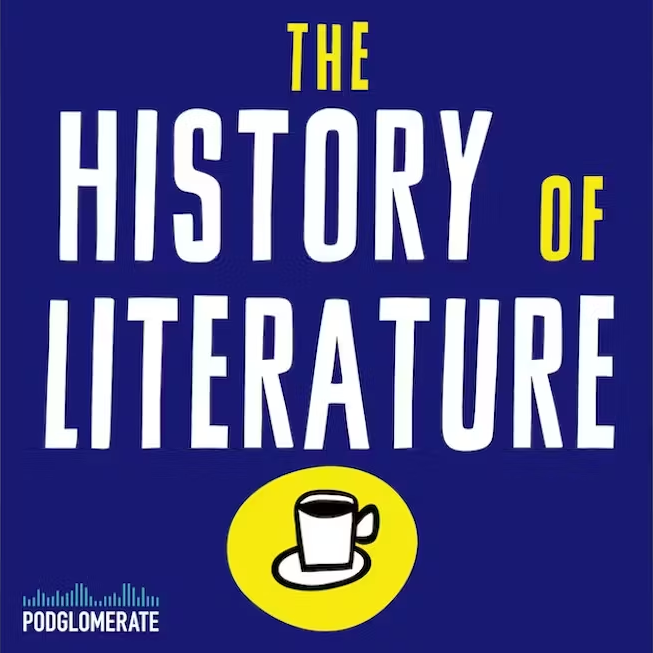William Shakespeare
-
The History of Literature #519 — Shakespeare’s First Folio (with Emma Smith) | My Last Book with Luke Parker
The compilation of Shakespeare’s plays known as the First Folio is one of the most important books in the history of literature. In this episode, Jacke talks to Shakespeare scholar and First Folio expert Emma Smith about the origins, importance, status, and legacy of this essential work, which celebrates its 400th birthday this year. PLUS… Continue reading
-
The History of Literature #506 — Black Shakespeare (with Ian Smith) | My Last Book with David Castillo and William Egginton
For centuries, Shakespeare’s works have been scrutinized by scholars and fans eager to engage with and learn from the texts. And yet, in spite of the prominence of race in today’s media headlines and public discourse, the questions of racialized blackness and whiteness raised by Shakespeare’s plays are often resisted. In this episode, Jacke talks… Continue reading
-
The History of Literature Podcast #484 — Reading John Milton (with Stephen Dobranski)
John Milton is often regarded as second only to Shakespeare in the history of English verse – and his epic poem, Paradise Lost, is viewed by many as second to none. His literary achievements are all the more remarkable when one considers the formidable political and personal obstacles Milton faced. In this episode, Jacke talks to… Continue reading
-
The History of Literature #475 — Portable Magic – A History of Books and Their Readers (with Emma Smith)
As we all know, the text of a book can possess incredible powers, transporting readers across time and space. But what about the books themselves? In this episode, Jacke talks to author Emma Smith (This Is Shakespeare) about her new book, Portable Magic: A History of Books and Their Readers, which provides a material history of… Continue reading
-
The History of Literature #332 – Hamlet (with Laurie Frankel)
Novelist Laurie Frankel joins Jacke to talk about her writing, her theater background, and her new novel One Two Three. Then Jacke and Laurie geek out on Shakespeare and choose the Top 10 Things To Love About Hamlet. Laurie Frankel is the New York Times bestselling, award-winning author of novels such as The Atlas of Love, Goodbye for Now, and the Reese’s… Continue reading
-
The History of Literature #133 – The Hidden Machinery – Discovering the Secrets of Fiction (with Margot Livesey)
http://traffic.megaphone.fm/ADL9154508206.mp3 Subscribe: Apple Podcasts | Android | Email | Google Play | Stitcher | RSS | More Ever wonder how fiction works? Or what great literature can teach us about writing? Novelist Margot Livesey returns to the show for a discussion of her book The Hidden Machinery: Essays on Writing. Help support the show at patreon.com/literature or historyofliterature.com/shop. Learn more about the show at historyofliterature.com or facebook.com/historyofliterature. Contact the host at jackewilsonauthor@gmail.com or @WriterJacke. Continue reading
-
History of Literature #80 – Power Play! Shakespeare’s Henry V
Who rules us and why? What does Shakespeare’s Henry V (c. 1599) tell us about the character of a leader? What does it tell us about the character of the people governed by such a man? Host Jacke Wilson jumps from kings to presidents, from the battlefields of France in the early fifteenth century, to… Continue reading
-
HoL Episode 30 – More Conspiracy!
What do Edgar Allan Poe, J.K. Rowling, William Shakespeare, Stephen King, Barack Obama, Hillary Clinton, and Justice Antonin Scalia have in common? Jacke Wilson connects the dots with another look at conspiracy literature, literary conspiracies, and the people who love them. (Part 2 of 2.) Continue reading
-
Terrible Poem Breakdown: An Apologia (and What They Knew #16-24)
Yesterday we started the new series Terrible Poem Breakdown, in which I criticized a Terrible Poem primarily for its negativity. I’ve had it pointed out to me that this may be somewhat hypocritical, coming from me. This blog has not exactly been moondreams and rainbows. Readers, I’ve been trying to be encouraging! And yet I… Continue reading
-
The Spirit of Self-Publishing: William Shakespeare Edition
So you’re thinking about self-publishing. You take some consolation in the dignity of small audiences and the examples of Marcel Proust and others. You use examples like the great Joanna Penn to show you the way. She reminds you that you’re keeping 70% of your sales (and 100% of your control). David Gaughran explains how… Continue reading
